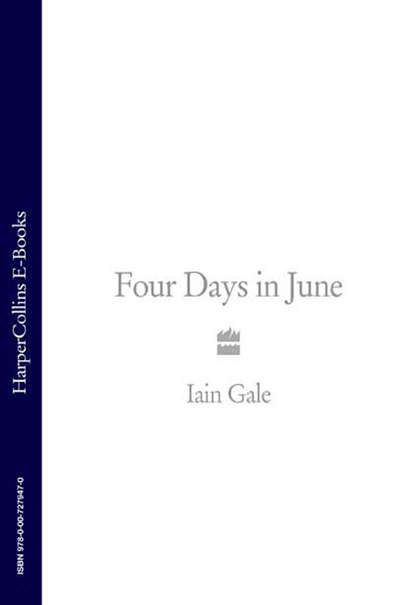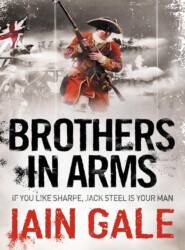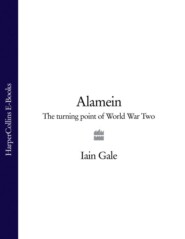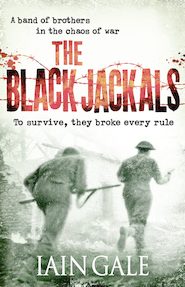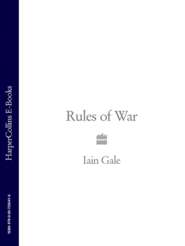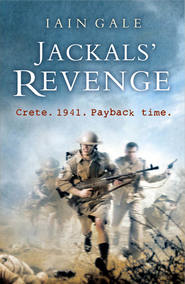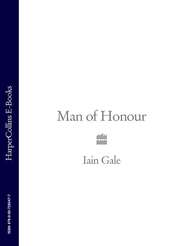По всем вопросам обращайтесь на: info@litportal.ru
(©) 2003-2024.
✖
Four Days in June
Настройки чтения
Размер шрифта
Высота строк
Поля
An officer appeared at his side. A junior aide-de-camp. Chef de Bataillon Arman Rollin. Ney spoke.
‘I see nothing, Rollin. No one. You think?’
‘I can see no movement, sir.’ Ney dropped the spyglass from his eye.
‘No. Why should there be? Of course they’re not here. They’re further north. And to the east. Oh, we’ve found them all right, Rollin. But we have not yet brought them to battle. And that is what we must do, eh?’
But how? And with what? Ney was not yet sure exactly who it was that he commanded. Had not seen many of them. On paper he had a third of the army. In the field, he stood here at the head of a corps, II Corps, General Reille’s. But as to the rest of his command – he was beginning to wonder quite where it was. He thought of historical precedent for his predicament. Scanned his mind for the many military theorists of whom he had made a study – Frederick the Great, Caesar, Gustavus Adolphus, Turenne, Alexander. Could find little to help him. Perhaps Frederick’s invasion of Bohemia – a divided army, two wings. With what result? The battle of Lobositz. But had he kept his army intact Frederick could have marched on Prague and walked straight in. An opportunity lost. Ney prayed that they had not just made the same mistake with Brussels.
The marshal had staked everything on rejoining his Emperor. In truth it had not been hard to desert the Bourbons. His wife had been treated abominably by the ladies of the new Royalist court. His return to the eagles was inevitable. But there had been moments. In particular that embarrassing reconciliation in the Tuileries, with Napoleon making Ney pay for his previous defection and all his grand utterances in favour of the new monarchy. The agony of contrition. Particularly before his fellow generals. But then – silence. The Emperor had not rewarded him for his renewed loyalty until two days ago, when a letter had arrived at his château at Coudreaux, near Châteaudun, summoning him to the army. They had met at last at Avesnes. The Emperor had embraced him, had clapped his personal aide, Colonel Heymes, on the back. They had all joked and smiled. And over a long, relaxed dinner their friendship had resumed.
They had spoken of the old days. Of Friedland, Eylau, Borodino. Not, predictably, of Spain. And then it was that he remembered just how much he loved that man. How long he had loved him. How he would have done anything for him. Still would. They were the same age and for the past twenty years their fates had been intertwined.
A sergeant-major under the last King Louis, by 1794 Ney has risen to major in the Republic, received the first of many wounds and by the age of twenty-six was colonel of his regiment – the 4th Hussars. By 1797 Ney was a general de brigade.
It was Napoleon, though, who had made him. Created him first, in 1801, Inspector-General of all France’s cavalry. In May 1804, on the day after Napoleon had been declared Emperor, he had made Ney a marshal. Four years later he was a duke. His service in Russia, commanding the heroic rearguard on a retreat that had cost the lives of half a million men, had earned him the unique title ‘Prince de la Moskowa’. And Ney knew himself to be a ‘prince among men’. Knew that his presence on a battlefield could inspire men to undreamed-of feats of bravery. That his name alone could win a battle.
It did not surprise Ney that no mention had been made that night at Avesnes, or since, of the fact that before his return to the fold Ney had sworn to Louis XVIII that he would bring Napoleon back to Paris ‘in an iron cage’. That was all in the past now. There was a war to fight. A war to win.
The following morning, with no horse of his own, Ney had followed the General Staff to Beaumont in a peasant cart. And then at Charleroi, only this afternoon, a smiling Napoleon had given him command not of a mere corps but of the entire left wing – more than a third of the army. And in addition, to his amazement, the light cavalry division of the Garde – the finest cavalry in the world. His orders were merely to ‘go and drive the enemy back along the Brussels road’. Jubilant as a child, Ney had taken Mortier’s horse and ridden fast to join Reille’s II Corps at Gosselies. And so here he was, standing with the few staff he had as yet assembled, on the rising ground above the little river Piéton, looking north.
Ney felt energized, more alive in fact than he had in years. Yet he was also more than a little alarmed. He had been given no specific insight into the Emperor’s plans and had had no time to formulate his own, to conduct any reconnaissance, even to meet his own staff. He knew most of them, of course – d’Erlon, Piré and Lefebvre-Desnouettes he had served with in Spain. But Reille was known to him only by hearsay – as the Emperor’s former aide. And within Reille’s corps was a wild card. The Emperor’s brother, Prince Jerome, the now ex-King of Westphalia, had been given a division – the largest in the army. He had a reputation for rashness, and Ney was anticipating problems.
He had left his own personal aide, his old friend and confidant Heymes, at Charleroi, to improvise the rest of the headquarters staff and follow on as he could. He knew that he must win this battle, this war. For if he lost, if the Emperor fell again, then his fate could only be a dawn appointment with a firing squad.
And things were not going according to plan. Despite the vagueness of the Emperor’s orders, one thing which had become clear to Ney from even a cursory look at the map was the strategic importance of a small crossroads astride the roads from Charleroi to Brussels and Namur to Nivelles. This junction, the village of Quatre-Bras, must, he felt, be taken by nightfall. But here at Gosselies he was still some 8 kilometres short of it, confronted by a force of uncertain number and with no way of achieving his primary objective.
‘We must consolidate, Rollin. We must push further. Establish the extent of their forces.’
‘Quite so, sir. But it is getting late and our men are tired and widely dispersed.’
He was right. The sun was sinking. It had been an exhausting day. And not without its flashpoints. Ney’s first action on assuming command had been to send one division of Reille’s corps to the north of the town to repel a Prussian attack. They had inflicted reasonable casualties and captured a dozen regular infantry, who revealed that they were part of Steinmetz’s brigade, Ziethen’s corps.
That had been at 5.30. Three hours ago. Quickly, Ney had divided his men, sending Girard’s 7th Division off in pursuit of the Prussians, who halted to the north east, at Wangenies. Just over an hour ago he had sent off General Lefebvre-Desnouettes and the Garde cavalry to reconnoitre around Frasnes. Now he held in his hand the report from Colbert, flamboyant colonel of the Garde’s Polish lancer squadron.
They had met ‘some resistance’ from within the farm buildings at Frasnes but had found no one beyond there, at Quatre-Bras, and had returned to the main force. Ney had immediately moved off a battalion of infantry to Frasnes and soon ejected the enemy. He was unclear again, though, as to exactly whom they had encountered and in what numbers. He looked at the report. Green uniforms, red facings, black busby. He showed it to Rollin.
‘What do you make of that?’
‘Nassauers, sir. Grenadiers. Wellington’s men.’
‘What do we know of them? What unit? See if you can find out.’
So. He had found Wellington’s advance guard. If that was what it was and nothing more. Even as he waited for more details a courier pulled up with another note, direct this time from the hand of Lefebvre-Desnouettes.
Monseigneur.
Frasnes we found occupied by around 1,500 infantry and eight cannon. Not those from Gosselies. These men are under the Duke of Wellington’s orders. Nassauers. The Prussians from Gosselies have gone on to Fleurus. Tomorrow at dawn I will send out a reconnaissance party to Quatre-Bras, which will occupy that position. I believe that the Nassau troops have now left. The peasants have told us that the Belgian army is in the vicinity of Mons and the headquarters of the Prince of Orange at Braine le-Comte.
It was somewhat garbled. But Ney thought that he understood what was meant. The Prussians had, as expected, retreated not towards Brussels but eastwards, in the direction of Fleurus, where their main army was evidently assembling. And Wellington? Wellington was somewhere to the north.
He was haunted by the man. Had encountered him first in Spain, at Bussaco. And just as Spain had been Wellington’s triumph, so it had been Ney’s undoing. The only smear on an unblemished military career. Massena’s fault. And then, amazingly, Ney had happened upon the Duke while out walking with Aglaé a year ago, in the Bois de Boulogne. Some months later he had made a now embarrassing outburst against Wellington in the Tuileries – bombast, and what amounted to a challenge. The words rang in his ears:
‘Let him meet us when luck is not in his favour. Then the world will see him for what he is.’
Perhaps now, at last, they would discover the truth of that boast.
Tonight, however, it was too late to move. Past nine o’clock. Desnouettes was right. The morning would do. The Nassauers would have run off with news of their encounter and Wellington would surely be hurrying to consolidate around Brussels. What to do? He thought of his mentor, Baron Jomini, France’s master tactical theoretician. Tried to imagine what he would do in such a situation.
Ney decided to pull back the infantry to Frasnes. He had heard firing from the direction of Gilly. That surely must be Napoleon engaging the Prussians? It was more imperative than ever now that his own force should remain secure. Besides, if his staff were to be believed, his men were dropping with fatigue. They had been on the march since three that morning. He considered his position. Napoleon and the right wing were on his flank, engaging the Prussians. His own command was strung out across more than fifteen kilometres, between Marchienne and Frasnes. The heavy cavalry under Exelmans was near Campinaire, and some distance behind them came the rest of the army. Yes. It was time to rest.
‘Dinner, sir?’ It was Heymes, at last, arrived from Charleroi.
‘Of course. Dinner. Where?’
‘A house, not a hundred metres away. In the Rue St Roch. The only place still occupied – with food and a fire. We could walk there.’
‘Fine.’
The little house looked out of place amidst the debris and chaos of war. A fairy-tale house – smoke at the chimney and flowers around the door, which was open. Ney entered and found inside a family, neatly turned-out and drawn up, almost as if for inspection. He felt faintly embarrassed. Smiled. Heymes spoke.
‘His name is Dumont, sir. He’s a clerk in the town. His wife. Their children.’
The couple looked terrified. The children less so. Four boys, thought Ney. A curious coincidence. He looked for a moment. The woman was pretty in a charming, petit-bourgeois way. Not like his own Aglaé. Her husband looked sound, if somewhat round shouldered, with an air of indignant confidence. He was no soldier, though.
The boys were roughly the same ages as his own. Good-looking too. He compared them – Napoleon, twelve, Louis, eleven, Eugene, now seven, and young Henri, just three. He thought of them all at Coudreaux, where even now Aglaé was perhaps helping their cook with the supper. The vision led him into foolish thoughts of their life together and everything with which they had been blessed over the last thirteen years.
They had met through the Empress Josephine, who, much taken with Ney, had begun to matchmake immediately for her young friend, pretty Aglaé Auguié, whose father had been one of Louis XVI’s finance ministers, and whose mother, in that vanished other-world, was lady in waiting to Marie-Antoinette. As a child she had survived the Terror and her mother’s suicide, precipitated by the execution of the Queen. Ney loved her for it. For her bravery. But more than this he loved her for her beauty – physical and spiritual. He touched his breast pocket, felt inside the shape of the miniature of her portrait by Gerard – the companion to his own.
He thought of their Paris house at the height of the Empire. Of his apartments overlooking the Seine. Of rooms crammed with mirrors, Aubusson tapestries and crystal chandeliers. Of the paintings – he had a particular taste for seventeenth-century Flemish art. Of his library, with its volumes of Racine, Rousseau and above all military theorists. Of their lavish candlelit receptions, thronged with painters, musicians, writers – Gros, David, Girodet, Gerard, Spontini, Gretry, Stendhal, Madame de Stäel.
He found that he had been gazing blankly at a crucifix on the wall and turned again towards Dumont’s four boys. Wondered when again he might give his two youngest piggybacks around their farmyard. Thought of their future together. All the pleasures that lay in store. Of taking them fishing; hunting wild boar; helping with the harvest. Then, becoming suddenly and unpleasantly aware of his own mortality, of the possibility of there being no future, he cast the vision from his mind. Smiled. Waved his hand towards the uncertain Belgian children.
‘Please, please. Do not be afraid. Thank you for your hospitality. Please just behave as you would normally. Pretend we are not here. Ignore us.’
Absurd, of course.
Food arrived. Bread, cheese, bacon, wine, brought in by the lady of the house. The srvants had fled. Ney gave her a smile. 0Rollin entered.
‘The Nassauers, sir. We believe them to be part of Wellington’s 2nd Division; Perponcher’s men. The Prince of Saxe-Weimar’s brigade. They might be part of a force as strong as 8,000. But I have to say that we believe it probable that they have now rejoined the main army.’
‘My thoughts exactly. Thank you. Join us?’
Local wine. Thin and lacking substance. What he would give for a good glass of Calvados. Noticing a flute hanging on the wall, he turned to his nervous host.
‘You play?’
‘A little, sir. When I have the time.’





